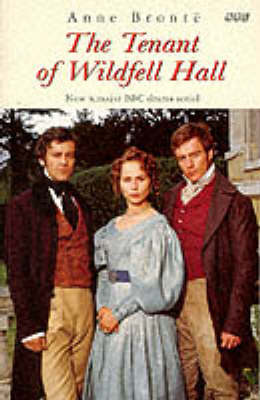When people discuss their favorite novels by the Brontë sisters, The Tenant of Wildfell Hall rarely comes up (unless you’re my co-blogger, who explains why The Tenant of Wildfell Hall is her favorite Brontë novel here), and perhaps that is because the novel is not as romantic as Jane Eyre and, yes, even Wuthering Heights are considered. It’s not a love story, after all, but rather a story about a woman caught in a loveless and abusive marriage that she never imagined. The remarkable insight that Anne Brontë offers into protagonist Helen Graham’s psyche, however, as well as the unflinching portrayals of men giving into different temptations and debaucheries to the suffering of the women around them make The Tenant of Wildfell Hall a masterpiece I am sorry I did not read soon.
The novel does have a frame narrative, which is always something I’m conflicted about because so often I get absorbed in the frame only to be broken away to hear a story from the past, and it was no different for me here. Readers are introduced to Helen Graham, the titular tenant of Wildfell Hall, who is clearly trying to walk a line between being private but not so reclusive that neighbors think she’s weird…and failing, based on the mystery and gossip that begin to surround her. I was caught up in the mystery myself, even though the footnotes gave me more hints than I cared for about why Helen was at Wildfell Hall; I would have liked to know if I would have figured out her story based on the foreshadowing if the editor hadn’t kept telling me the plot.
However, the main story, the story of Helen’s courting and then marriage and its subsequent decline is incredibly compelling, more so than the frame narrative I had become so invested in. It’s a penetrating look into abusive marriages–how a young Helen, idealistic and certain she had found true love–fell into an ultimately loveless marriage with a man addicted to drinking and other women. It also gives a harsh reality check to those who think they might be able to reform bad men if they just do/say the right things or are good enough themselves. And, finally, it’s a compassionate look at why women in abusive relationships so often stay. (Yes, Helen had fewer options for leaving her husband due to the time period than she would today, but the psychological aspects of why she stays for so long seem timeless.)
I also enjoyed (if that’s the right word), the portrayals of Helen’s husbands friends–all of whom are heavy drinkers and generally terrible people, just in different ways. That is, Brontë doesn’t have a cardboard cutout “type” of a man who abuses his wife or just the people around him; she shows a whole range. Some drink more. Some drink less. Some get angry. Some lay hands on their wives, while some do not. One even tries his best to abstain from addictions like drinking and gambling but never has the strength to separate himself from his bad friends. Each is characterized with care, but the overall picture is not bleak because, rest assured, there are actually good men in the book, as well.
If you want a story about a strong woman or a story concerned with the inner lives of women and how they deal with bad relationships, check this out.
